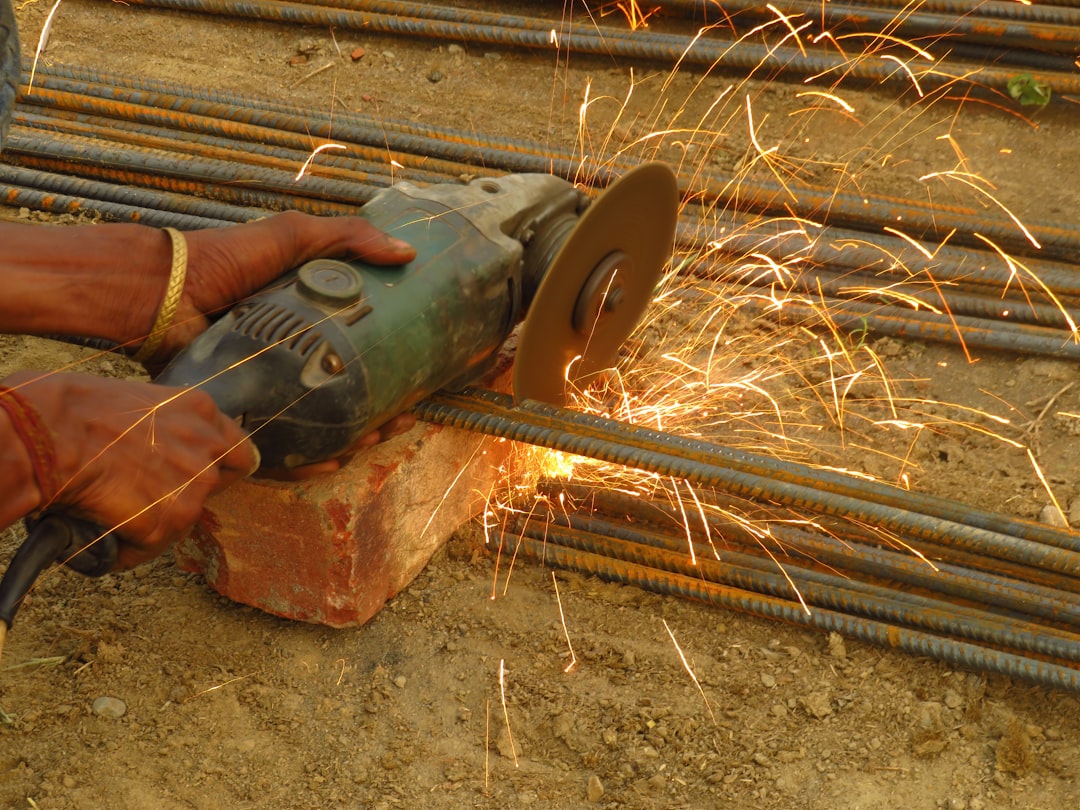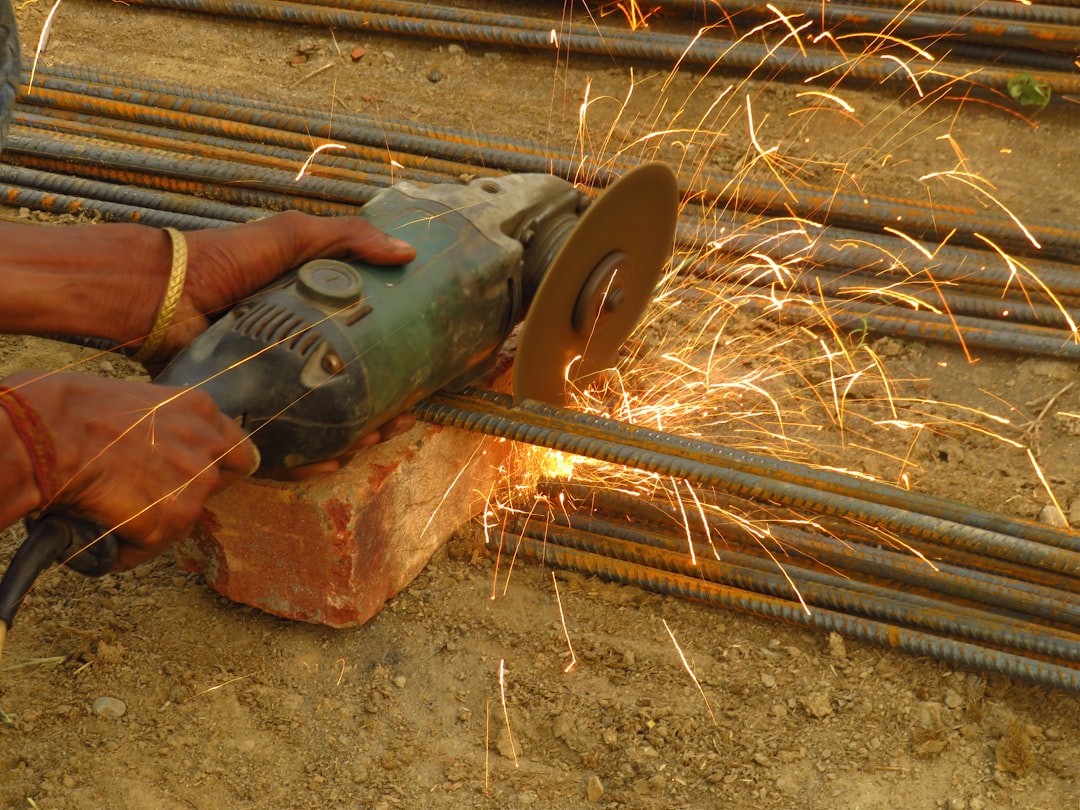Understanding GCC Welding Assessment Requirements
GCC construction markets maintain specific welding standards. Furthermore, these vary between Emirates and Kingdoms. Additionally, project types influence certification requirements. For example, structural steel work demands different tests than pipeline welding. Moreover, international standards often apply alongside local codes.
Welder qualification typically involves multiple components. First, visual inspection identifies obvious defects. Second, destructive testing verifies weld integrity. Third, non-destructive examination detects hidden flaws. Additionally, theoretical knowledge assessment ensures understanding. Consequently, comprehensive evaluation covers all competency aspects.
- Visual examination for bead appearance and consistency
- Bend testing for ductility and fusion quality
- Radiographic testing for internal defect detection
- Theoretical knowledge of materials and techniques
- Safety protocol understanding and application
- Blueprint reading and interpretation skills
Furthermore, certification validity periods require monitoring. Therefore, employers must track requalification schedules. Additionally, different welding processes need separate certifications. For instance, SMAW, GTAW, and GMAW each demand specific testing. Moreover, material variations affect qualification scope.
Welder Skill Test Construction Strategic Overview
Implementing effective welder skill test construction protocols requires planning. First, define position-specific requirements clearly. Second, select appropriate testing methodologies. Third, establish evaluation criteria beforehand. Additionally, document all procedures systematically. Consequently, standardized assessment ensures consistent results.
The strategic approach considers multiple factors. Project specifications determine necessary certifications. Furthermore, material types influence test selection. Additionally, code requirements dictate minimum standards. Moreover, safety considerations affect testing environment setup. Therefore, comprehensive planning prevents oversight.
- Position analysis for specific skill requirements
- Test method selection based on project needs
- Evaluation criteria development with clear benchmarks
- Documentation system for results tracking
- Quality assurance protocols for testing consistency
- Equipment calibration and maintenance schedules
Furthermore, strategic implementation considers scalability. Therefore, standardized procedures allow consistent application. Additionally, training assessors ensures evaluation reliability. Moreover, periodic review maintains relevance. Consequently, systematic approach delivers sustainable results.
Legal Framework and Compliance Standards
GCC welding regulations reference international standards. Furthermore, local authorities adopt modified versions. Additionally, project specifications often exceed minimum requirements. For example, Abu Dhabi follows stringent quality control protocols. Moreover, Saudi Aramco maintains proprietary standards.
Compliance documentation requires careful management. First, welder certifications need proper verification. Second, test results require secure storage. Third, audit trails must demonstrate due diligence. Additionally, renewal schedules demand tracking. Consequently, systematic documentation prevents compliance issues.
- ASME Section IX welding qualification standards
- AWS D1.1 structural welding code requirements
- Local civil defense approval certifications
- Project-specific client quality requirements
- International Labour Organization safety guidelines
- Material manufacturer recommended procedures
Furthermore, regulatory updates occur frequently. Therefore, monitoring changes proves essential. Additionally, International Labour Organization guidelines provide foundational principles. Moreover, UAE government employment regulations specify local requirements. Consequently, ongoing compliance demands vigilance.
Welder Skill Test Construction Best Practices
Successful welder skill test construction implementation follows established practices. First, simulate actual working conditions during testing. Second, use materials identical to project specifications. Third, maintain consistent evaluation criteria. Additionally, provide clear instructions to candidates. Consequently, realistic assessment predicts job performance accurately.
Quality assurance begins with proper facilities. Furthermore, adequate ventilation ensures safety during testing. Additionally, calibrated equipment guarantees measurement accuracy. Moreover, qualified examiners maintain assessment integrity. Therefore, investment in proper infrastructure pays dividends.
- Realistic test positions matching job requirements
- Material specification alignment with project needs
- Blind evaluation to prevent assessor bias
- Multiple sample testing for consistency verification
- Immediate feedback mechanisms for continuous improvement
- Digital recording for results transparency
Furthermore, benchmarking against industry standards proves valuable. Therefore, compare results with regional norms. Additionally, participate in proficiency testing programs. Moreover, implement corrective actions for identified gaps. Consequently, continuous improvement maintains assessment quality.
Documentation and Processing Steps
Proper documentation validates welder qualification processes. First, create standardized test report forms. Second, implement secure storage systems. Third, establish retrieval protocols. Additionally, maintain confidentiality appropriately. Consequently, organized records support compliance verification.
The documentation lifecycle involves multiple stages. Furthermore, initial certification requires complete records. Additionally, renewal documentation must link to original qualifications. Moreover, performance tracking enables trend analysis. Therefore, systematic management provides operational intelligence.
- Welder qualification test record completion
- Visual examination checklists with accept/reject criteria
- Destructive test reports with photographic evidence
- Non-destructive testing certification documents
- Theoretical examination answer sheets and results
- Assessor qualification and authorization records
Furthermore, digital systems enhance efficiency. Therefore, consider specialized software solutions. Additionally, backup procedures prevent data loss. Moreover, access controls maintain security. Consequently, proper documentation management supports operational excellence.
Welder Skill Test Construction Implementation Timeline
Realistic timeline planning ensures successful implementation. First, preparation phase typically requires one week. Second, candidate assessment takes two to three days. Third, results processing needs additional time. Additionally, certification issuance completes the process. Consequently, total timeline spans two to four weeks.
Multiple factors influence implementation duration. Furthermore, candidate volume affects scheduling. Additionally, test complexity determines assessment length. Moreover, documentation requirements impact processing time. Therefore, accurate planning prevents schedule disruption.
- Week 1: Test development and facility preparation
- Week 2: Candidate screening and scheduling
- Week 3: Practical assessment and theoretical testing
- Week 4: Results evaluation and certification issuance
- Ongoing: Requalification scheduling and tracking
- Quarterly: Process review and improvement implementation
Furthermore, resource allocation affects timeline adherence. Therefore, secure qualified assessors early. Additionally, prepare materials in advance. Moreover, coordinate with supporting departments. Consequently, proactive management maintains schedule integrity.
Common Challenges and Solutions
Welder assessment programs face several typical challenges. First, candidate preparation levels vary significantly. Second, equipment availability can create bottlenecks. Third, assessor qualification requires ongoing attention. Additionally, standard maintenance demands continuous effort. Consequently, anticipating challenges enables proactive solutions.
Practical solutions address these common issues. Furthermore, pre-assessment guidance improves candidate readiness. Additionally, equipment maintenance schedules prevent downtime. Moreover, assessor training programs maintain competency. Therefore, systematic approach minimizes disruption.
- Challenge: Inconsistent candidate preparation. Solution: Provide pre-test information packages.
- Challenge: Equipment calibration drift. Solution: Implement strict maintenance protocols.
- Challenge: Assessor availability constraints. Solution: Develop multiple qualified evaluators.
- Challenge: Changing code requirements. Solution: Establish continuous monitoring systems.
- Challenge: Documentation management complexity. Solution: Deploy specialized software systems.
- Challenge: Cultural/language barriers. Solution: Utilize multilingual instructions and evaluators.
Furthermore, U.S. Department of Commerce trade resources offer international perspectives. Additionally, World Health Organization workplace standards inform safety protocols. Moreover, World Bank labor market reports provide contextual data. Consequently, external resources enhance problem-solving.
Expert Recommendations for Success
Successful welder assessment programs share common characteristics. First, management commitment ensures adequate resources. Second, technical expertise maintains program credibility. Third, continuous improvement sustains relevance. Additionally, stakeholder engagement promotes acceptance. Consequently, holistic approach delivers optimal results.
Specific recommendations enhance program effectiveness. Furthermore, regular benchmark against industry leaders proves valuable. Additionally, participant feedback identifies improvement opportunities. Moreover, technology adoption increases efficiency. Therefore, proactive enhancement maintains competitive advantage.
- Secure executive sponsorship for resource allocation
- Engage technical experts in program development
- Implement regular review cycles for process improvement
- Invest in modern testing equipment and facilities
- Develop internal assessor capability through training
- Establish key performance indicators for monitoring
Furthermore, professional recruitment resources support program development. Additionally, external partnerships provide specialized expertise. Moreover, industry networking shares best practices. Consequently, collaborative approach accelerates success.
Frequently Asked Questions About Welder Skill Test Construction
What is the timeline for welder skill test construction?
Timeline typically ranges 2-4 weeks depending on candidate volume and test complexity. Furthermore, documentation preparation affects processing speed. Therefore, consult our specialists for accurate estimates.
What documentation is required for welding assessment?
Required documents include test reports, visual examination records, theoretical results, and certification documents. Additionally, candidate identification and previous experience records apply. Moreover, assessor qualifications require verification.
What are typical costs for welder qualification?
Costs vary by test complexity, materials, and volume. Furthermore, equipment investment, assessor time, and documentation affect total investment. Therefore, request detailed quotations from assessment providers.
How does Allianze HR ensure assessment quality?
We maintain qualified assessor networks and calibrated equipment. Additionally, our team follows international standards and local requirements. Moreover, we conduct thorough verification at every stage.
Which welding processes can Allianze test?
We provide assessment for SMAW, GMAW, GTAW, FCAW, and SAW processes. Furthermore, we test various material combinations including carbon steel, stainless steel, and aluminum alloys. Additionally, position qualifications cover all orientations.
What industries does Allianze welding assessment serve?
Our expertise covers construction, oil and gas, manufacturing, power generation, and infrastructure development. Additionally, we handle both structural and pipeline welding qualifications across all GCC markets.
Partner with Allianze HR for Welding Assessment Success
Implementing robust welder skill test construction protocols ensures project quality. Furthermore, systematic assessment reduces welding defects significantly. Additionally, proper certification maintains regulatory compliance. Moreover, qualified welders enhance workplace safety. Therefore, comprehensive testing delivers substantial return on investment.
Allianze HR brings specialized expertise to welding assessment. Furthermore, our GCC experience addresses regional requirements. Additionally, our technical capabilities ensure accurate evaluation. Moreover, our documentation systems maintain compliance. Consequently, partnership provides complete solution.
Successful welding assessment requires specialized knowledge. Therefore, leverage our established protocols and qualified assessors. Additionally, our systematic approach delivers consistent results. Moreover, our compliance expertise prevents regulatory issues. Thus, schedule consultation appointment for personalized guidance. Finally, implement best practices with expert support.




